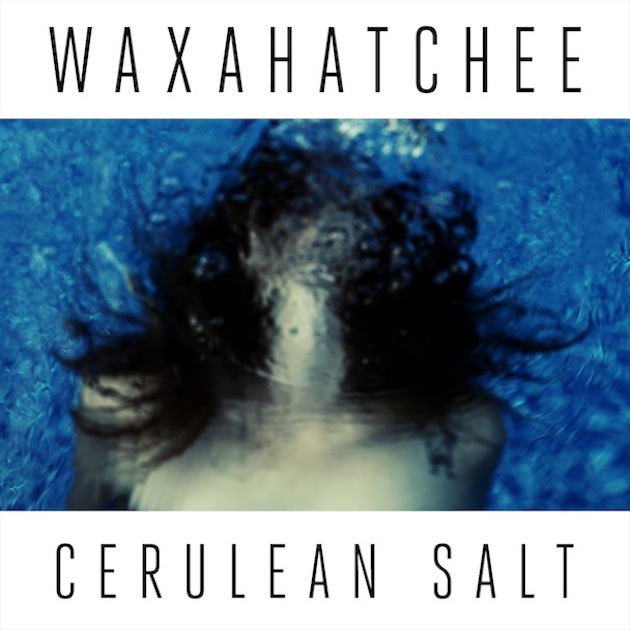Toward the tail end of Waxahatchee’s new record Cerulean Salt Katie Crutchfield (braintrust of the band and former member of Birmingham-based indie punks P.S. Eliot) unleashes a devastating line that functions in many ways as a clean thesis statement for the project as it has existed to date. On “Swan Dive,” the antepenultimate track, she sings “I’m ruled by seasons/and sadness that’s inexplicable.” She seems, for a brief moment, at a loss. But still she outlines what the heartbreaking body of work that surrounds that track and her previous collection of cracked acoustic songs does at its basest level. She builds monuments to the bitter ends of relationships and awkward middle grounds where thoughts, emotions, and action all become intertwined in a bleary haze of crippling confusion. Through intricate attention to intimate details she pays tribute to the ineffable, explaining the sadness inexplicable that so often strikes you at your weakest.
On her 2012 outing, American Weekend, Crutchfield zeroed in on the experience, both romantic and carnal, of being 22. Expressing youthful desires to embrace vices and exploring the profundity of intemperance. Her lyrics were intensely personal, ostensibly, but still retained an air of relatability. Here Crutchfield’s turns of phrase often read slightly more esoteric, or at least less venomous, despite being often more specific than American Weekend allowed. “Coast to Coast” finds Crutchfield observing blood on the backseat while scanning the dials looking for the titular late night radio show, before diving into the emotional meat of the song (“[indulging] every reckless whim” with a friend/lover). Like many of the tracks, it frames relatable emotional longing within the context of more inscrutable anecdotal elements. If Waxahatchee is indeed an effort at expressing the inexpressible, Crutchfield’s tactic on “Coast to Coast” (and throughout) is an incredibly effective one, offering the indelible impression of relatable emotional states by providing the context of these other stories to fill in the blanks where words often fail.
Lesser songwriters might stop there, and accept lyrical maturation as the only necessary step toward a sophomore effort, but Crutchfield also uses Cerulean Salt as a way to expand her sonic palette beyond the crackling acoustic guitar ballads that marked her previous work. Where broken guitar work lay before (echoing Crutchfield’s broken protagonists) is the intermittent roar of ’90s influenced indie rock. It’s a bold move, and one that creeps back to the fuzz-pedal-as-pathos aesthetic of P.S. Eliot’s albums, but it services these newly confident songs. While “Dixie Cups and Jars”‘s floor tom rattle and guitar, just at the point of breaking up, might seem more akin to Young Marble Giants than any child of ’90s college radio, the tinny guitar fuzz that punctuates Crutchfield’s assertion that she’ll find “a way to leave gracefully” is pure boldness. Though Crutchfield is an avowed fan of Cat Power (something apparent in the sonics of her first record) here she chooses instead to step out into the forefront, less demure and guitars a-blazing when she wants to, creating greater diversity and allowing tracks like “You’re Damaged” and “Blue Part II” to stand out not only for their more staid palette but for the chiaroscuro that they conjure in their abject contrast.
American Weekend was one of those records that sneaks up on you, so slow, spare, and subtle that each following listen revealed little details that weren’t apparent on initial listens. Cerulean Salt retains Cructchfield’s outstanding songwriting voice (pushes it further even) while giving the record a sonic immediacy that its predecessor lacked. The surface level is seductive enough to catch your attention, to pull you in with the wail of guitars on “Coast to Coast” or the little intricacies of the sparse bass work on “Brother Bryan,” but, man, just wait until your 20th spin. Just wait.


